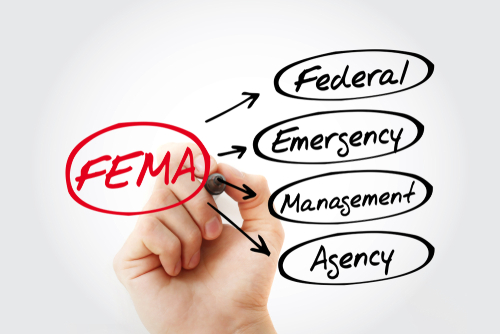The mission statement of the Federal Emergency Management Agency is simple: “Helping people before, during, and after disasters.” FEMA was created by an executive order signed by President Jimmy Carter in 1979. FEMA garners most media attention in the aftermath of natural disasters. FEMA plays a major role in addressing the needs of people following a natural disaster like a hurricane. A recurring question is whether FEMA provides aid in the aftermath of a terrorist attack.
Related resource: TOP 20 EMERGENCY MANAGEMENT DEGREE ONLINE PROGRAMS
Acts of Terrorism as Defined by FEMA
FEMA has a broad definition of what constitutes terrorism for the purposes of people and businesses being able to access aid from the agency. In some situations, threats of terrorism may also open the doors to FEMA aid, which will be discussed further shortly.
Acts of terrorism that open the doors to FEMA assistance include bombings, hijackings, assassinations, kidnappings, and cyber attacks. Acts of terrorism for the purposes of FEMA assistance also include attacks using, chemical, nuclear, radiological, and biological weapons. If otherwise benign instrumentalities are used to further a terrorist attack, FEMA aid will be available. The use of commercial aircraft in the 9-11 attacks is one such example. 9-11 also involved a hijacking to effect terrorism in the United States.
As mentioned a moment ago, threats of terrorism can also trigger FEMA assistance. The reality is that even a threat of a terroristic attack can interrupt a community. This can have a quantifiable impact on people and businesses in that community. For example, a threat of a terroristic attack may result in an evacuation, an action that disrupts the lives of individuals and the transaction of business, resulting in financial and other losses of different types.
Emergency Assistance from FEMA Following an Act of Terrorism
In the aftermath of an act of terrorism, FEMA provides emergency assistance similar to what is available following a catastrophic natural disaster. This assistance includes meeting the basic needs of the impacted population, including food and temporary shelter. FEMA coordinates the provision of emergency assistance with state and local authorities in the area effected by an act of terrorism.
Non-Emergency and Long-Term Assistance from FEMA Following an Act of Terrorism
In the aftermath of an act of terrorism, FEMA also provides non-emergency and more long-term assistance as well. This includes unemployment assistance for people who are not able to work for one reason or another because of an act of terrorism. This assistance extends to self-employed individuals who typically do not qualify for unemployment compensation.
FEMA also provides low-interest loans as well as grants to homeowners and renters who face housing issues following a terrorist attack. Business owners are also able to access more long-term assistance following a terrorist attack as well. Business owners may be able to obtain low-interest loans as well to rebuild or address certain damages caused by a terrorist attack.
A prime example of how FEMA responds to a terrorist attack can be seen in New York following the attack of 9-11. The assistance available from FEMA was deemed to be quite comprehensive and effective according to those involved in the response to the 9-11 attack on the U.S.A.
